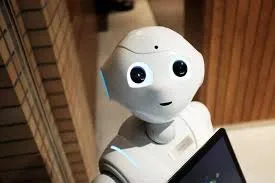
"The Future of Work: How Technology is Changing the Job Market"
Technology is rapidly changing the way we work, with many experts predicting that the future of work will look vastly different from the traditional 9-5 job model. Here's what you need to know about how technology is changing the job market:
- Automation: Many jobs that were once done by humans are now being automated, with robots and artificial intelligence taking over tasks like data entry, customer service, and even some medical procedures. This could lead to significant job loss in some industries.
- Remote Work: The COVID-19 pandemic has accelerated the trend of remote work, with many companies transitioning to a fully remote or hybrid work model. This has opened up new opportunities for employees who may not have been able to work in traditional office settings.
- Gig Economy: The rise of the gig economy, with platforms like Uber, Airbnb, and TaskRabbit, has given rise to a new kind of work that is based on short-term contracts or freelance work. This model provides flexibility for workers, but also presents challenges in terms of job security and benefits.
- Upskilling and Reskilling: As jobs become automated, workers will need to upskill and reskill to remain competitive in the job market. This means that education and training will become even more important in the future of work.
- New Jobs and Industries: While automation may lead to job loss in some industries, it will also create new jobs and industries. For example, the development of autonomous vehicles will lead to new jobs in software engineering and data analysis.
Overall, the future of work is uncertain, but one thing is clear: technology will play a significant role in shaping it. Workers will need to be adaptable and willing to learn new skills in order to stay competitive in the job market.